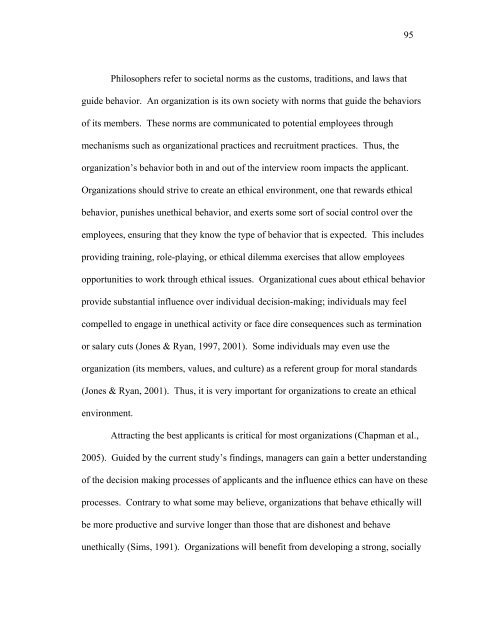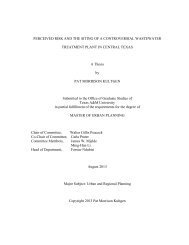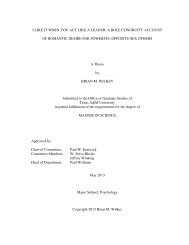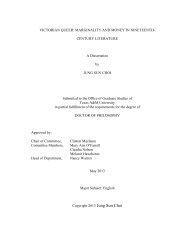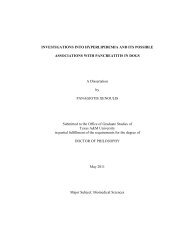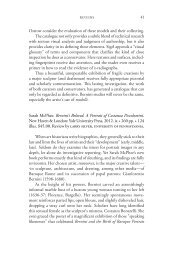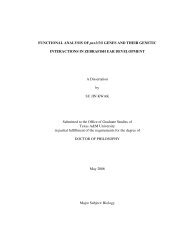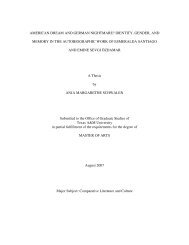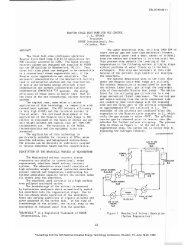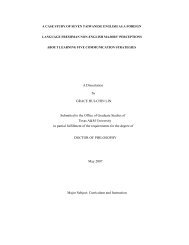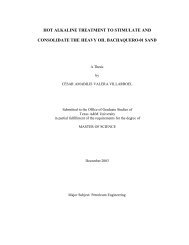THE EFFECT OF ETHICAL SIGNALS ON RECRUITMENT ...
THE EFFECT OF ETHICAL SIGNALS ON RECRUITMENT ...
THE EFFECT OF ETHICAL SIGNALS ON RECRUITMENT ...
Create successful ePaper yourself
Turn your PDF publications into a flip-book with our unique Google optimized e-Paper software.
Philosophers refer to societal norms as the customs, traditions, and laws that<br />
guide behavior. An organization is its own society with norms that guide the behaviors<br />
of its members. These norms are communicated to potential employees through<br />
mechanisms such as organizational practices and recruitment practices. Thus, the<br />
organization’s behavior both in and out of the interview room impacts the applicant.<br />
Organizations should strive to create an ethical environment, one that rewards ethical<br />
behavior, punishes unethical behavior, and exerts some sort of social control over the<br />
employees, ensuring that they know the type of behavior that is expected. This includes<br />
providing training, role-playing, or ethical dilemma exercises that allow employees<br />
opportunities to work through ethical issues. Organizational cues about ethical behavior<br />
provide substantial influence over individual decision-making; individuals may feel<br />
compelled to engage in unethical activity or face dire consequences such as termination<br />
or salary cuts (Jones & Ryan, 1997, 2001). Some individuals may even use the<br />
organization (its members, values, and culture) as a referent group for moral standards<br />
(Jones & Ryan, 2001). Thus, it is very important for organizations to create an ethical<br />
environment.<br />
Attracting the best applicants is critical for most organizations (Chapman et al.,<br />
2005). Guided by the current study’s findings, managers can gain a better understanding<br />
of the decision making processes of applicants and the influence ethics can have on these<br />
processes. Contrary to what some may believe, organizations that behave ethically will<br />
be more productive and survive longer than those that are dishonest and behave<br />
unethically (Sims, 1991). Organizations will benefit from developing a strong, socially<br />
95


